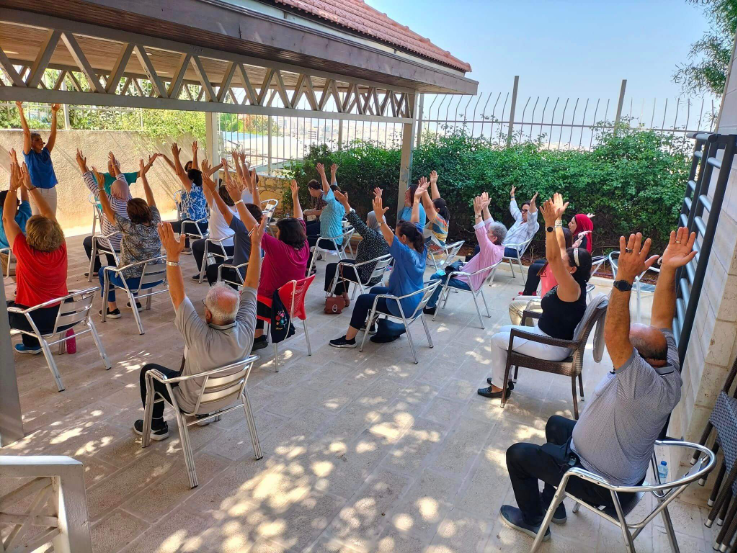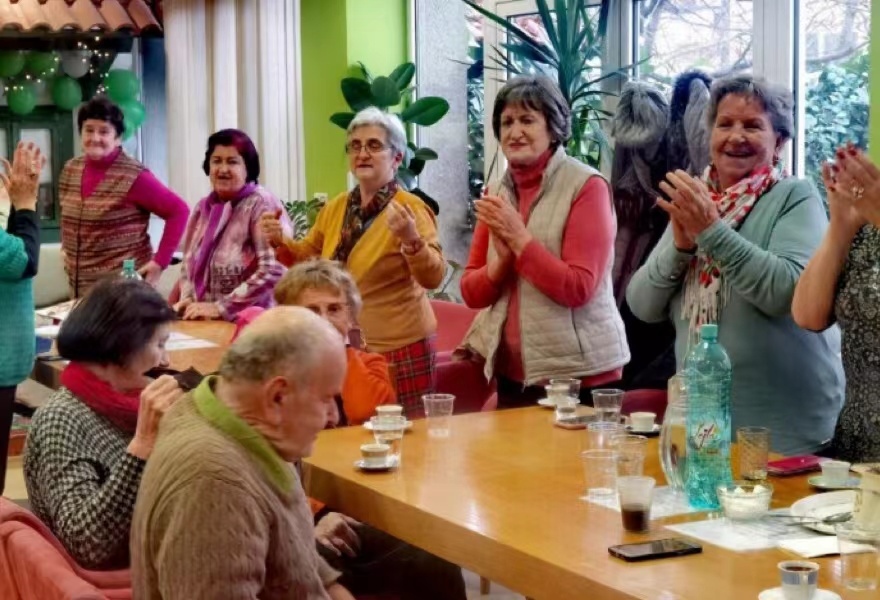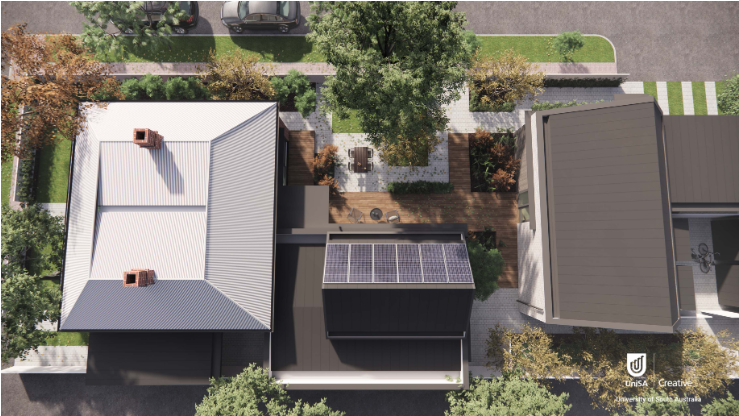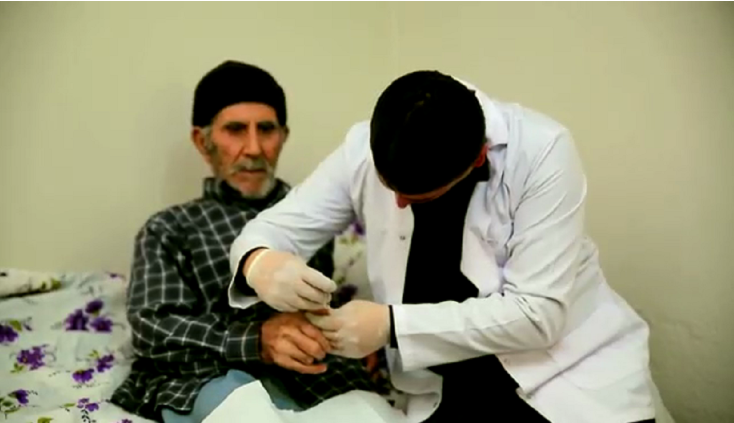Urban Innovation Maps Out a New Blueprint for an Ageing Society
Editor’s Notes
Population aging refers to the phenomenon where the median age increases due to lower birth rates and/or longer life expectancy.
According to United Nations statistics, as of 2022, the global elderly population aged 65 and over is approximately 761 million, accounting for 9.8 percent of the world’s total population. The United Nations projects that by 2050, the global elderly population will increase to nearly 1.6 billion, accounting for 16 percent of the total global population. This growth reflects the increase in life expectancy and the decline in birth rates globally, highlighting the accelerating trend of population aging.
As the trend of population aging intensifies, how to cope with the challenges posed by an aging society has become an urgent issue for governments and urban planners. Aging not only affects the labor market and social welfare systems, but also places higher requirements for urban infrastructure, healthcare services, and community development. Faced with this challenge, some cities have explored a series of solutions to address population aging through innovative practices. These innovative cases are not only reflected in the application of intelligent technologies, but also cover multiple aspects such as urban planning, social services, community building, etc., striving to create a more inclusive, safe and convenient living environment for the elderly.
This article will introduce several representative cases of urban innovation in GZA, demonstrating how they address the complex issues brought about by aging through diversified strategies. These practices not only provide valuable lessons and insights for other cities, but also offer new ideas for advancing the global response to aging societies, thereby collectively laying the foundation for building more resilient and sustainable cities in the future.
Ramallah, Palestine
Forum of Expertise, a community-led active aging initiative
(Shortlisted Initiative of the 6th Guangzhou Award)

The Ramallah Municipality’s “Forum of Expertise” initiative promotes active aging and well-being through an innovative community center. Dedicated to enriching the lives of elderly residents, it enhances their quality of life and resilience.
The initiative has significantly increased senior community engagement and volunteerism, fostering holistic well-being. Seniors are empowered through sharing their expertise, gaining both purpose and community recognition. A recent milestone includes publishing a book documenting the personal stories of 25 elderly members, preserving their experiences for future generations.
Beyond its community, the Forum of Expertise has inspired neighboring municipalities such as Al Bireh, Selfeet in Palestine, and Madaba Municipality in Jordan to establish similar centers. The initiative provides a blueprint for fostering resilience, inter-generational connections, and overall well-being.
Sarajevo, Bosnia and Herzegovina
“Elderly Hub”- Center for Active Aging
(Initiative of the 6th Guangzhou Award)

According to 2020 UNFPA research, Sarajevo has seen a 66.7% rise in residents aged 65 and above. Responding to this urban aging trend, Sarajevo has launched a plan to set up an Elderly Hub for active aging.
The main goal of Sarajevo initiative is to improve social, economic and environmental sustainability and good urban governance with the experience of elderly in order to see the prosperity and quality of life of Sarajevo citizens.
Through this initiative Sarajevo will achieve social inclusion of elderly in the local level. By organizing the elderly hub with around 4.000 of people, it will be achieved: quality of life of this people as well as their families, new level of social sustainability, new positive manners of behavior by older people, improved transparency through the government sector as well as other areas.
Unley, Australia
“Cohousing for aging well” - Designing for aging in place
(Shortlisted Initiative of the 5th Guangzhou Award)

Adelaide is one of the most populous metropolitan regions in Australia, with 1.3 million people. The City of Unley, a local government area in the Adelaide metro region with a population of approximately 39,145 people, proposed a novel and age-friendly community co-design principles with older residents to inform new cohousing options.
The initiative aims to establish a new concept and principles of cohousing with shared amenities and a desirable environment to enhance social cohesion. It included a suite of innovative cohousing designs sympathetic to local housing styles. The initiative can benefit the elderly population (i.e., aged 60 and above) in Unley, which constitutes 22.6% of the city’s population.
The project presents a good methodology that could be replicated for other types of housing development, innovative in terms of pushing the boundaries of existing urban planning codes. It also tackles zoning and construction regulations that make the housing market more elastic and responsive to demographic and economic trends.
Kahramanmaras, Turkey
Smart Elder Care System (YADES)
(Deserving Cities of the 5th Guangzhou Award)

The metropolitan municipality of Kahramanmaras has a population of 1.15 million, among which nearly 100,000 are over the age of 65. For this age group, especially those with mobility challenges, self-care is also a challenge. Within the framework of the national “Yades 2016 Smart Elderly Care and Coordination Centre Project”, the municipality is taking care of its senior residents with this initiative.
It is an intelligent follow-up and call system installed in the homes of residents of 65 years of age or above. It is equipped with a smart automation system powered by machine-to-machine technology and the Internet of Things. In the event of an emergency, such as fire, natural gas leak, smoke, or flood, the system will automatically convey the information to the Smart Elder Care Call Centre, which is staffed with trained personnel all day long.
The initiative prioritizes senior residents who have mental/physical health issues or who live alone. Currently, a total of 400 homes are being served remotely. Since its launch in 2016, 6,000 thousand people have benefited from this initiative.
-
 Urban Innovation in China | Revitalizing Villages in the Cities While Retaining Their “Patch” Functions
Urban Innovation in China | Revitalizing Villages in the Cities While Retaining Their “Patch” Functions -
 City Stories | Unley, Australia: Cohousing for aging well – Designing for aging in place
City Stories | Unley, Australia: Cohousing for aging well – Designing for aging in place -
 In Focus| International Day of Persons with Disabilities: Building an Accessible World Together
In Focus| International Day of Persons with Disabilities: Building an Accessible World Together -
 In Focus| International Day of Persons with Disabilities: Building an Accessible World Together
In Focus| International Day of Persons with Disabilities: Building an Accessible World Together


 Urban Innovation in China | Revitalizing Villages in the Cities While Retaining Their “Patch” Functions
Urban Innovation in China | Revitalizing Villages in the Cities While Retaining Their “Patch” Functions City Stories | Unley, Australia: Cohousing for aging well – Designing for aging in place
City Stories | Unley, Australia: Cohousing for aging well – Designing for aging in place In Focus| International Day of Persons with Disabilities: Building an Accessible World Together
In Focus| International Day of Persons with Disabilities: Building an Accessible World Together




















 Tel: +86 20 3780 4434
Tel: +86 20 3780 4434 Email: info@guangzhouaward.org
Email: info@guangzhouaward.org Address: Rm 1609, FuLiXinTianDi, No.307 Guangzhou Dadao Zhong, Yuexiu District, Guangzhou, Guangdong, 501600, PRC
Address: Rm 1609, FuLiXinTianDi, No.307 Guangzhou Dadao Zhong, Yuexiu District, Guangzhou, Guangdong, 501600, PRC




